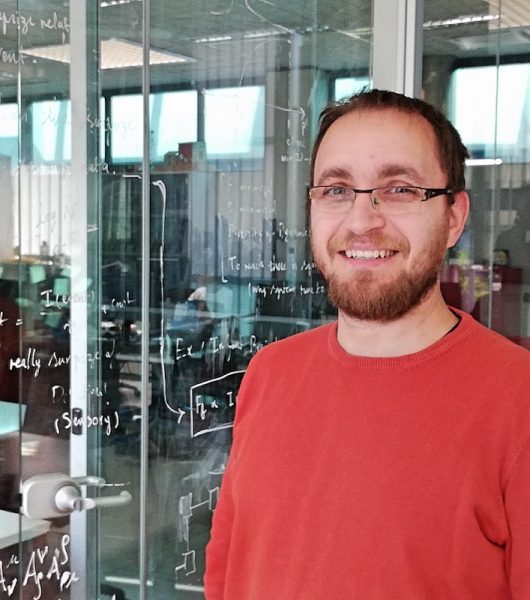“PRINCIPIA”, a new peer-review platform is here
A group of Italian researchers has advanced a chainblock-based platform, which aims to reform the scientific publications system, restoring the centrality of academia over journal publishers
Publications are the heart of scientific research, the only real divide between what is science and what is not. No finding or result, significant or not, can in fact deserve a “science certificate” if it has not first been published in a specialized journal.
However, publishing a scientific article is not a piece of cake: to do so it is necessary to pass a process of verification called peer-review. It is called peer review as papers are anonymously reviewed by other researchers from the scientific community, with “equal backgrounds” as those of the authors.
Peer-review represents an undoubted guarantee of reliability and accuracy in scientific production, which acts as an indispensable filter between good and bad research and also as a tool capable of improving the general quality of the articles submitted for publication. However, like all human enterprises, the system has defects and criticalities, which have long been the object of discussion within the scientific community. Some of these have emerged clearly in recent months when the health emergency that has somehow revolutionized the times of science, compressing them and in some ways weakening the role of peer-review itself.
But beyond these unusual times, for some years now groups of researchers have been working to propose new approaches to “peer review”, capable of more motivating reviewers and rebalancing the entire scientific publications market. Among these is the PRINCIPIA project, conceived by five researchers and a computer engineer (all Italian and working in international research contexts), who made their idea public in an article recently published on the online platform arXiv.org.
The group also includes Manlio De Domenico, head of the CoMuNe Lab research unit of Fondazione Bruno Kessler, who explains the most important reasons behind the proposal. «The current peer-review system is totally unbalanced in favor of publishers of scientific journals. It works like this: we do research with the funding of public or private bodies, which pay us to produce scientific works. When we write an article, we contact the publishers to publish it, giving them a piece of our work for free. At that point, the editors ask other scholars like us to review this work, also in this case for free: peer-review, in fact, is considered a service for the scientific community and ususally it is not paid. But that’s not enough: if the journal is open-access, i-e-, it makes the articles available for free to readers, researchers must also pay to publish their piece of knowledge». Definitely too much, according to De Domenico. “Also because all this happens at relatively zero or almost zero cost for publishers, who often have academic staff on their editorial committees, also free of charge. In short, it is very good business: it is no coincidence that the largest publishers have even higher profits than giants like Google and Facebook».
The problem, however, is not only financial, but it also concerns the issue of journals’ prestige, a key element in directing a researcher’s career. «The current system is strongly influenced by quality indices, such as the impact factor of a journal, which in some cases have been introduced by the publishers themselves. The direct consequence of all this is that more incentives are given to publish in certain journals, creating an actual ecosystem of elites, which favors in particular those publishers and those journals that have accumulated prestige over time: it is a mechanism that leads to the distortion of the entire academic system for sure “.
The PRINCIPIA project was created to overcome these critical issues, restoring the centrality of academia over publishers. “This work has been in the pipeline for at least two years, and is the result of public discussions on Twitter that have highlighted the need for a change in the system,” De Domenico added. “We propose to rebalance the cycle of publications in such a way that the investments that society makes in science return to society, and do not remain almost entirely with publishers.”
To do this, the idea is to create a real free market for peer-review, created through a blockchain, which aims first of all at giving reviewers a different role: within PRINCIPIA, in fact, reviewers would no longer do the peer-review for free but would receive a fee for each review, which would be defined on the basis of the quality of the reviews. In addition to this, a journal’s reputation would no longer be determined by obscure indices or “traditional” prestige, but solely by the reputation of its editorial board members. In this way, even a “new” journal could easily gain authoritativeness right from the start, unlike what happens now, where newly established journals find it hard to carve out a noteworthy space for themselves.
«With our system, journals shift from being static to dynamic, that is, they become “liquid” journals. This would solve the problem of creating the elite groups I mentioned earlier at the root. The concept according to which “either you publish in those journals or you are nobody“, which unfortunately governs the current system, would lose its meaning».
The message is even stronger if you think that all the researchers involved in the PRINCIPIA project are members of the editorial boards of prestigious journals, therefore system “insiders”. “We are very familiar with the current system since we are part of it, and for this very reason we want to improve it”, De Domenico stressed.
The next step now is to build the platform. “Right now we are looking for investors to develop the blockchain on which the new system would be based. This is not a particularly high investment: our hope is to find someone willing to believe in a project that, in our opinion, would restore research to its natural role, to work for society“, the researcher concluded.
To learn more about the PRINCIPIA project, in addition to the article published on arXiv.org, you can see the dedicated website.


